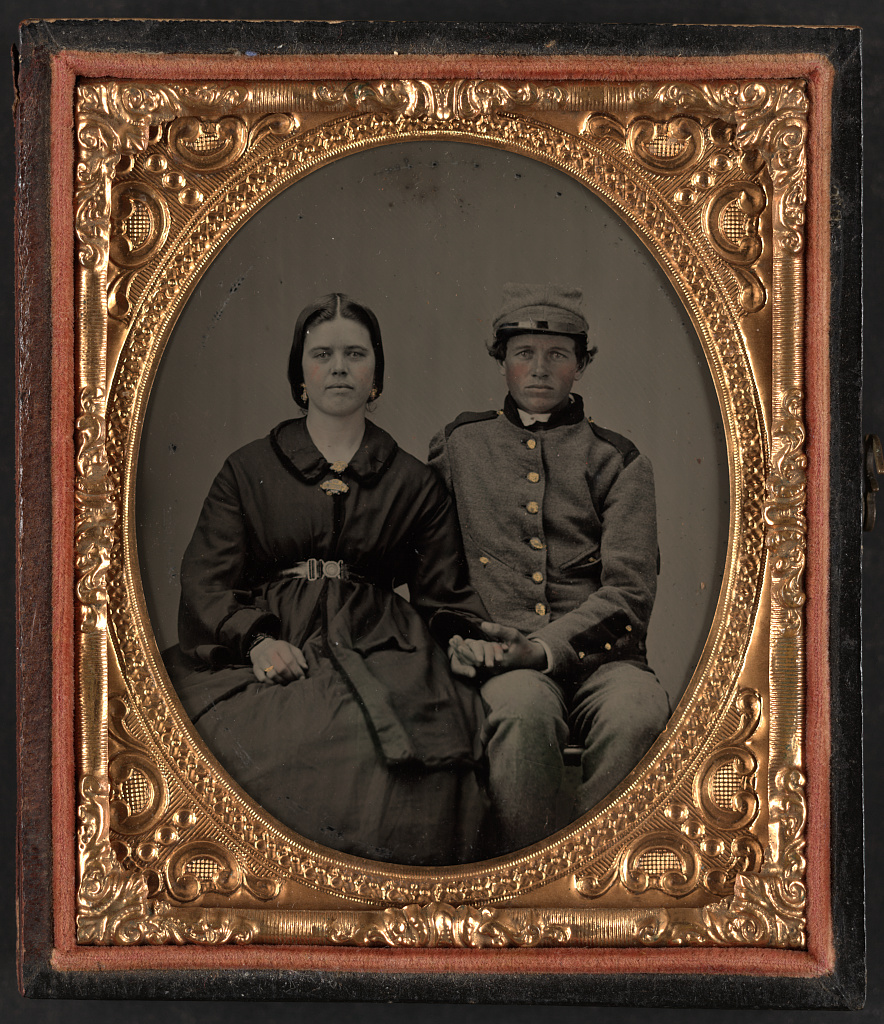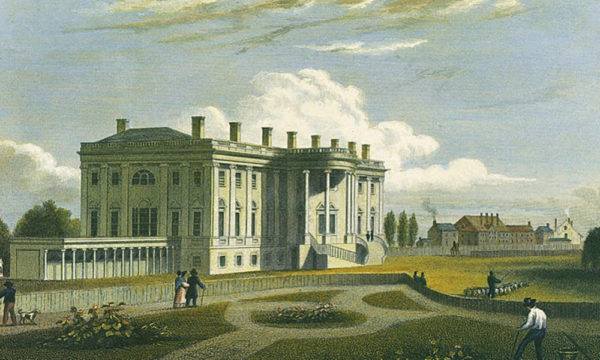“…You said he’s a Confederate general. They’re the bad guys. And he’s probably racist… We’re going to raise our kids here. I don’t want some Confederate General ghost teaching them his racism…”[I]
Yep… a “bad guy”… a “racist”… a boogeyman…
That’s what Hollywood, mainstream media and a large part of American society and politics think of your Confederate ancestor. This little diatribe from the popular New York City based sitcom How I Met Your Mother fits somewhere along the spectrum of popular thought concerning the soldier of the South. At its most benign, he’s simply an unfortunate statistic, a number, a byproduct of that “dark little corner labeled ‘slavery and treason’.”[ii] Somewhere past that notion he is caricatured as an incompetent, illiterate, hayseed dupe who fought to keep his rich neighbor profiting from slavery. At the worst end of the spectrum is the idea that he was a subhuman monster with beliefs and conduct akin to Nazi Germany’s Waffen-SS. While we know this is unequivocally false, far too many people hover around this end of the spectrum. Examples of this type of malignity include Jon Stewart of The Daily Show celebrating “Union Victory Appreciation Month” (a distasteful spoof of Virginia’s Confederate History Month) by “selling” a chess set complete with all of the Confederate pieces either covered in blood or on fire and with what appears to be crumbled buildings all over the board.[iii] One might get the impression that living, breathing Yankees with hopes, dreams and culture were fighting an abstract, dark evil that threatened to engulf everything pure in the world while attempting to destroy the greatest country on earth.
To many, however, he is simply forgotten. The war is ancient history with no effect on modern day society or politics. How many municipalities have memorials on courthouse lawns, or in parks, to young men of the community who served or died in every other conflict? Some, even naming them individually. But, most of the time, they have no mention of their sons who “wore the gray” and if they do, there’s a good chance that there is a current campaign to take down what amounts to a communal cenotaph. Never mind the fact that those sons were answering that community’s call and defending its social honor and integrity. Many counties and towns lost an entire generation of young men during the war. Some lost that generation on single battlefields within hours or even minutes. This catastrophic loss has not been replicated.
Men that these communities lost in Cuba, Europe, the Pacific, Africa, Southeast Asia and the Middle East are regularly honored with parades, festivals and other events (and rightfully so)but the Confederates lie in resolute silence. Unrecognized, except by their proud descendants who often find themselves at odds with the local government and excluded from these community events. Surely, the excuse that there are no Confederate Veterans living has been thrown around but will the same happen after the last World War II veteran has been dead for decades? Will these communities forget their sons who died in the Norman Hedgerows or on Saipan, as they have those that died at Shiloh or the Wilderness?
All-too-often, even those who sympathize with the Confederate soldier can find themselves inadvertently forgetting his humanity. We must remember that this “statistic” was a living, breathing human being with a quirky personality and character flaws. He had hopes, dreams, hobbies and a sense of humor. He was White, Black, Hispanic, Native or Asian. At different times he was hungry, thirsty, bored, cold, scared, depressed homesick or terrified. He loved and missed family, friends and his sweetheart. He prayed, sang, wept, laughed, hunted, fished and got into his fair share of mischief. He talked of liberty, self-government and defending his home. He was a farmer, a lawyer, a tradesman or a merchant. He was a son, a brother, a husband, an uncle, a cousin, and most important to his descendants, he was father.
Most of us have done our fair share of viewing these men for the big battles they were in or even simply a part of the overall cause itself. We have (rightfully so!) put him on a pedestal of marble, granite or bronze but we must remember that he was human just like us!
The best attempt that can be made toward understanding this is quite simple: reading primary sources. Tens of thousands of letters and hundreds of diaries exist to this day. Read what Johnny Reb wanted to tell you, not what some “professional historian” wants to “interpret” from what he had to say. There are many outstanding diaries and memoirs that have been published but one must be leery as several “enlightened” editors have taken it upon themselves to tell you what Johnny Reb meant when he wrote this or that.
But, by and large, you get a detailed sense of who he was and what he went through. From the minutiae of camp life to the extreme terror of battle, everything is there in his words. And, you’ll find details that you won’t find anywhere else. Every day, whether under fire or not, was about survival. The Confederate soldier endured a full range of things while living through the overall experience that we now look on as the War for Southern Independence. We look back on the grand scale of things but he lived it day-to-day and minute by minute.
It certainly hits close to home when you think of history as a vast collection of individual experiences rather than leaders, statistics and grand campaigns.
Another thing that hits close to home is examining your home, itself. Research the local unit(s) and the men of the community that went off to fight. If they made it home, find out where they are buried. There are several resources both nationally and locally for looking up land records. Find out where he lived. If you live in a rural area then you’re probably looking at nearly the same thing he did. Appreciate the land and soil he went off to war to die for. The same area that reared him, reared you. Had you been contemporaries, you might’ve been friends, neighbors, schoolmates or went to the same church. You might find yourself asking if you would be willing to endure the same things he did for home.
Hopefully, this finds you inspired. There is a concerted effort among educators to further de-humanize Johnny Reb, starting with the indoctrination, from a very young age, of our children. Young Confederate descendants are being taught to hate their ancestors who suffered and died…for them. This must be fought, starting in our homes. Raise your children to revere Johnny Reb and emulate his virtues. Keep these stories of our fathers alive and emphasize that he is not some distant historic footnote that needs forgotten!
All of this gives that “statistic” new life and enables us to have a clearer understanding of The War for Southern Independence and its effects.
[i] “No Tomorrow.” How I Met Your Mother. CBS. 17 Mar. 2008. Television
[ii] Wilson, Clyde. “Lies My Teacher Told Me: The True History of The War for Southern Independence.” The Abbeville Institute, July 22nd, 2014.
[iii] “Virginia’s Confederate History Month & Griffin Mascot.” The Daily Show with Jon Stewart. Comedy Central. 8 April. 2010. Television.







